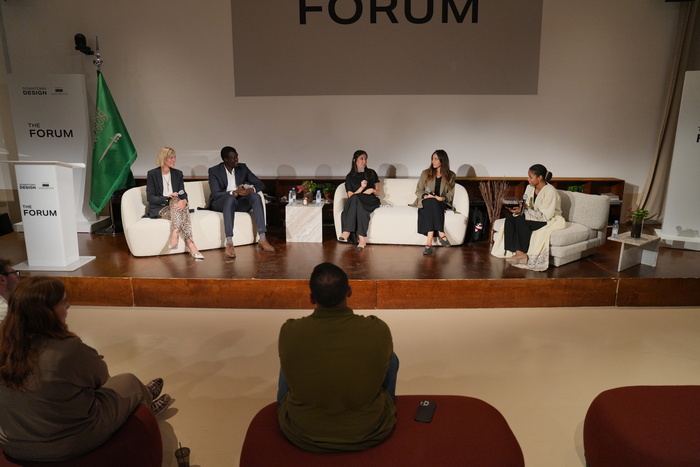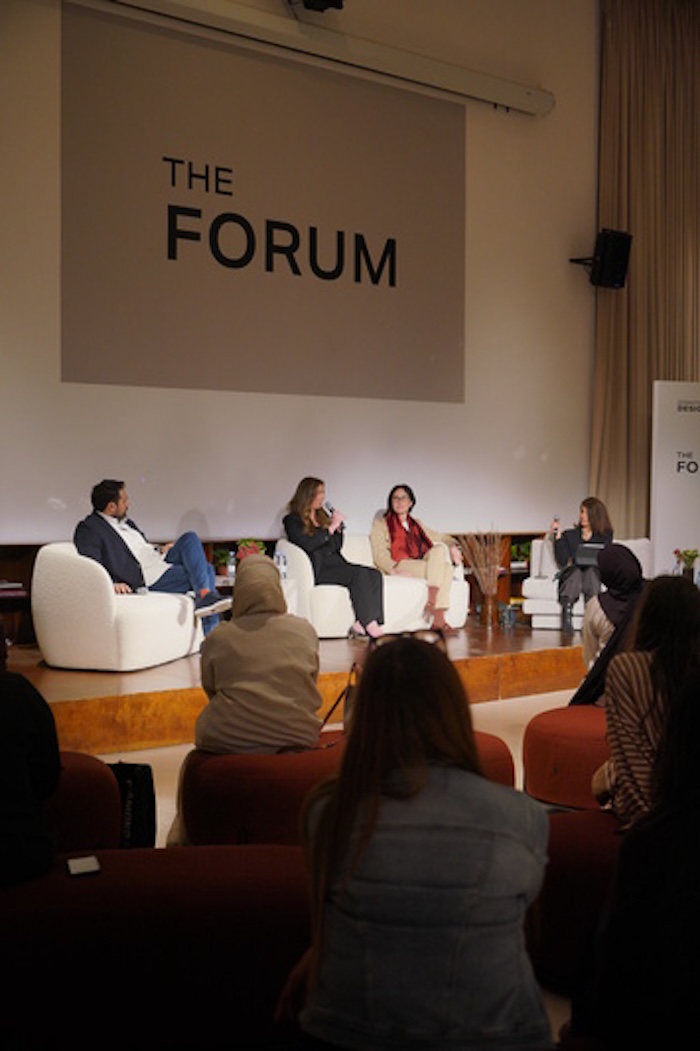As the official industry partner for the inaugural edition of Downtown Design Riyadh, RIBA played a key role in shaping the event’s thought leadership programme. Organised and delivered by Aldrine Sanchez, Senior development lead for the Gulf region at RIBA Gulf, and Hala Lloyd, Director at the Buro Happold Saudi office, RIBA hosted two timely panel discussions that explored the future of the built environment in Saudi Arabia and the wider region.
The first session, “Climate resilience challenges for wide-scale development,” brought together experts to discuss strategies for integrating climate resilience into large-scale development. Moderated by Roaa Babiker (Buro Happold), the panel included:
- Aya Dummar (DWP)
- Abubakar Garba (Buro Happold)
- Isabelle McKinnon (Gerber Architekten)
- Yasmine Mamlouk (Gensler).
The dialogue focused on tackling environmental challenges, the use of sustainable materials, and future proofing urban planning.
Speakers noted the Kingdom’s ambitious Vision 2030 projects as both an opportunity and a responsibility to set global benchmarks in resilient design. Challenges like rapid urbanisation and energy-intensive economies were met with optimism about innovation, citing examples from mega to giga-projects across the Kingdom.

The second session examined how Saudi Arabia’s ambitious Vision 2030 is shaping contemporary architecture. Moderated by Dr. Randa A. Mahmoud (Prince Sultan University), the session featured Maria Alessandra Segantini (C+S ARCHITECTS), Emilia Dobrzynska (HBA), and Youssef Ibrahim (Gensler). The panel discussed the integration of modern design with cultural heritage and sustainability in the Kingdom’s transforming urban landscape, and the conversation explored how Saudi Arabia’s rapid urbanisation, economic diversification, and cultural preservation efforts are shaping a new architectural identity for the Kingdom.
The session concluded with a consensus that the Kingdom of Saudi Arabia is at the forefront of a transformative architectural renaissance—one that harmonises innovation, sustainability, and cultural legacy. As Vision 2030 continues to unfold, the Kingdom’s built environment will serve as a testament to its dynamic future while honouring its rich past and heritage.
For any upcoming events and activities in the region, please visit the RIBA Gulf page.

About Vision 2030
Under the leadership King Salman bin Abdulaziz Al Saud, and His Royal Highness Prince Mohammed bin Salman bin Abdulaziz, Crown Prince and Prime Minister, Saudi Arabia embarked on a journey toward a brighter future with the launch of Vision 2030 in 2016. This transformative roadmap draws on the Kingdom’s distinctive strengths: its central role in the Arab and Islamic worlds, robust investment potential, and strategic geographic location.
Vision 2030 serves as a comprehensive framework to diversify the economy, empower citizens, attract both local and international investment, and position Saudi Arabia as a leading global player. Structured in successive five year phases, the Vision is designed to evolve over time, with each stage building on the progress of the last.









